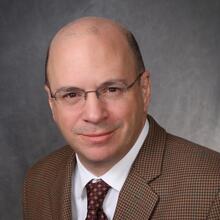For many decades, the Catholic Church has been at the forefront of the immigration debate, both in the United States and globally. Pope Francis has made it a centerpiece of his papacy, elevating the issue even higher in the hierarchy of social issues of concern to the church.
Appropriately, the church has positioned itself as a defender of the migrant, focusing on the right of an individual to move to a different country in order to support his or her family or to escape persecution. What Catholic leaders, including Pope Francis, could articulate more effectively, however, is another component of Catholic teaching: the right of a sovereign nation to control its borders.
Given the record numbers of forcibly displaced persons worldwide, not to mention the increasing number of migrants attempting to reach developed nations, this second right is increasingly relevant. But what exactly is church teaching on borders? How can a person have a right to migrate and a sovereign nation have the right to control its borders at the same time?
How can a person have a right to migrate and a sovereign nation have the right to control its borders at the same time?
In short, neither right is absolute. The presumption, however, is that nations, particularly the most developed, should receive migrants to the greatest extent possible in order to serve the universal common good. While some limits may be unavoidable, Catholic teaching sets a high bar for a nation to credibly claim that it has reached its capacity to receive immigrants.
In a speech in Marseille on Sept. 23, for example, Pope Francis rejected the notion of a “migrant emergency” in Europe and exhorted European governments to open their ports to people fleeing hardship and poverty. Just days earlier, however, Prime Minister Giorgia Meloni of Italy had reiterated her call to impose a naval blockade in the Mediterranean to prevent migrants from attempting to reach Europe by boat.
Catholic immigration advocates would argue that, as a wealthy nation, the United States has a great capacity to welcome newcomers and must prioritize the human dignity of migrants. Such a notion of dignity, they would say, suggests that no migrant is a burden; rather, migrants are an asset to the nation. They would also make the case that the long-term solution to large and unpredictable migration flows is to address the root causes of flight, such as income inequality and persecution. Migrants not only have a right to migrate but also a right not to feel compelled to migrate.
Nevertheless, Catholic leaders would be wise to couple that message with one that acknowledges the notion of sovereignty, as it would enhance, not detract from, the effectiveness of the church’s overall talking points on migration. How so?
A message that acknowledges border security could reach the Catholics in the pews who are ambivalent about, if not downright hostile to, immigration.
First, it would disarm critics who suggest that the church supports “open borders” and should be ignored on the issue. Some of the commentators go as far as to claim that the church supports irregular migration in an attempt to “fill the pews.” Some House Republicans are attacking Catholic agencies that work with migrants, saying that they facilitate illegal immigration. Without an answer to these claims, the credibility of the church on the issue slowly erodes, especially for the average Catholic who may hold security and economic concerns about high levels of immigration.
Second, a border message could reach the Catholics in the pews who are ambivalent about, if not downright hostile to, immigration. Polls show that many Americans, including Catholics, favor immigration reform but also want better control of the nation’s southern border. In order to reach the Catholics in the middle, the U.S. bishops must better articulate a message on immigration that encompasses both justice for migrants and control of the nation’s borders.
Finally, if any immigration reform is passed, it will almost certainly include provisions for controlling the nation’s borders. Instead of staying out of this part of the debate, Catholic leaders should engage it and work to ensure that due process for asylum seekers and migrants is preserved at the U.S.-Mexico border. They also could advocate to eliminate inhumane enforcement practices, such as the separation of families, indefinite detention and abusive treatment. Otherwise, it would be left to immigration opponents, who would push for the most draconian and inhumane practices to control our borders.
For his part, Pope Francis has been inspiring in his defense of the migrant. He has humanized the issue in a way that highlights its moral aspects, appealing to the conscience of the world. Without his voice, governments would be in a worse position on this issue. However, world leaders might heed his voice even more if he reaffirmed their right to (humanely) maintain their borders, even briefly, in his speeches and statements. It could provide them the political cover to support positive measures that would help migrants.
The world is facing some tough choices on the issue of migration. There are 110 million displaced persons globally, not including those who are fleeing climate change. Governments are increasing their enforcement tactics against migrants and stripping away their rights under international law. We may be facing a tipping point at which some nations may entertain closing their borders altogether.
The church should and will continue to defend the rights of the migrant. Teaching on migration will not change. Catholic leaders, however, should re-examine how they explain it.








